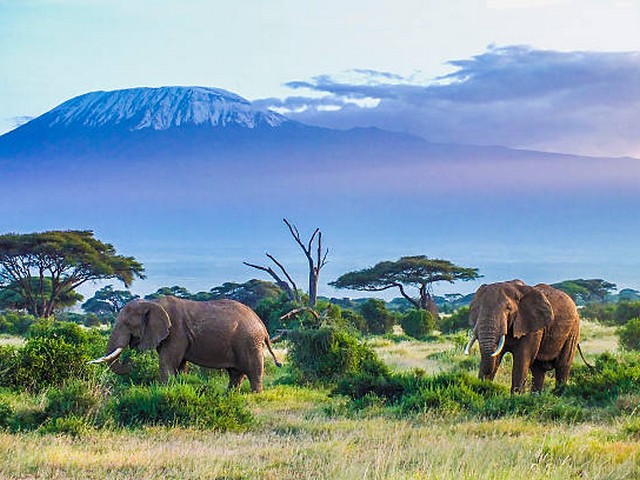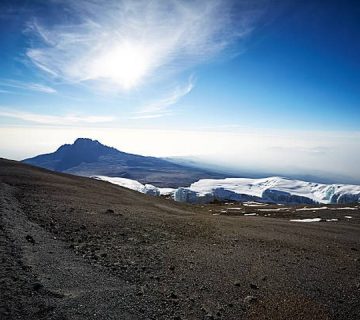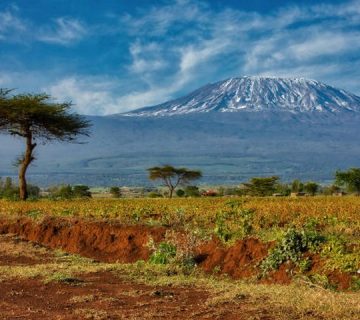Kilimanjaro Trekking As A Solo Female: Safety Tips
Welcome to the adventurous world of Mount Kilimanjaro, where the sky meets the land in breathtaking harmony! At the Kilimanjaro Centre For Trekking and Ecotourism (KCTE), we understand that the decision to trek Africa's highest peak as a solo female traveler can be both exhilarating and daunting. This blog post is dedicated to empowering you with the best safety tips and guidance to make your Kilimanjaro journey not just possible, but also incredibly rewarding.
Why Choose Kilimanjaro For Your Solo Adventure?
Mount Kilimanjaro is more than just a mountain; it's a beacon of personal accomplishment and a testament to the human spirit's resilience. Trekking Kilimanjaro as a solo female traveler is a powerful statement of independence and strength. The diverse landscapes, from lush rainforests to stark alpine deserts, promise a journey as rich in scenery as it is in soulful introspection.
Preparing For Your Trek: Safety Starts With Planning
Knowledge is Power
Before lacing up your hiking boots, thorough preparation is crucial. Understanding the climatic conditions, altitude changes, and physical demands can significantly mitigate risks. At KCTE, we provide comprehensive pre-trip orientations and detailed packing lists tailored for female trekkers.
Choosing the Right Route
Kilimanjaro offers several routes, each with unique advantages. For solo female trekkers, we recommend the Machame or Lemosho routes. These paths are not only scenic but also provide more gradual acclimatization and have a reliable flow of fellow trekkers and guided groups, ensuring that you're rarely alone.
Ensuring Personal Safety: On and Off the Trail
Join a Guided Group
While the idea of trekking solo is appealing, joining a guided group can enhance your safety. At KCTE, we organize groups that are welcoming to solo travelers and pay special attention to creating a supportive environment for women. Our experienced guides are trained to handle various emergencies and ensure a safe and enjoyable experience for everyone.
Trust Your Guides
Our guides at KCTE are your primary resource on the mountain; they are trained to deal with medical emergencies, including altitude sickness, and are knowledgeable about the safest paths to ascend and descend the mountain. Trusting their advice and instructions can be life-saving.
Communicate Openly
Never hesitate to express any concerns about your health or safety. Whether it's altitude sickness symptoms or a personal security issue, our team is here to support you fully. Open communication with your guide and group can make a significant difference in your overall experience.
Staying Healthy and Hydrated
Monitor Your Health
The altitude and physical exertion can take a toll. Keep an eye on your body's responses. We encourage regular health checks by our guides, who are trained to recognize and react to altitude-related symptoms.
Hydration and Nutrition
Maintaining hydration is crucial. Drink plenty of water and avoid alcohol and caffeine. Nutritious meals, rich in carbohydrates and proteins, are provided throughout your trek to keep your energy levels up and your body functioning optimally.
Cultural Sensitivity and Respect
Dress Appropriately
While Tanzania is a relatively liberal country, cultural sensitivity is vital. Dressing modestly respects local customs and can prevent unwanted attention. Layered clothing is also practical for the fluctuating temperatures on Kilimanjaro.
Local Interactions
Embrace the chance to interact with locals. Tanzanians are known for their friendliness and hospitality. A respectful understanding of cultural norms goes a long way in enriching your travel experience.
After Your Trek: Safety in Leisure
Post-trek, you might want to explore more of Tanzania. Whether you're on a safari in the Serengeti or relaxing on the beaches of Zanzibar, the same principles of awareness and communication apply. Always use reputable, vetted services for accommodation and travel – something KCTE is happy to help arrange.
Why Book With Kilimanjaro Centre For Trekking and Ecotourism (KCTE)?
Booking your Kilimanjaro trek with KCTE ensures not only a memorable adventure but also a safe one. We pride ourselves on our impeccable safety record and our commitment to empowering female trekkers. With KCTE, you gain a community, a wealth of local knowledge, and 24/7 support throughout your journey.
Frequently Asked Questions
Q: What is the best time of year for females to trek Kilimanjaro?
A: The best times are during the dry seasons, from June to October and from December to March. These periods offer favorable weather for trekking.
Q: How do I deal with altitude sickness?
A: Prevention is key, which includes proper acclimatization. Our guides are also equipped to provide immediate care and make necessary decisions should symptoms escalate.
Q: Are there any age restrictions for trekking Kilimanjaro?
A: The minimum age is 10 years old, but there is no upper age limit. Fitness and health assessments are more crucial than age.
Q: Can I extend my trip to visit other attractions in Tanzania?
A: Absolutely! We offer customized packages that can include safaris, beach holidays, and cultural tours.
Call To Action
Ready to stand on the Roof of Africa? Join us at Kilimanjaro Centre For Trekking and Ecotourism (KCTE) for an empowering and safe trekking experience. Whether you're a seasoned hiker or a first-time adventurer, our expert team is here to guide you every step of the way. Book your journey today and take the first step towards an unforgettable adventure as a solo female traveler on Mount Kilimanjaro!
Embrace your adventurous spirit with KCTE – where your safety and satisfaction are our top priorities. Let's conquer Kilimanjaro together!




